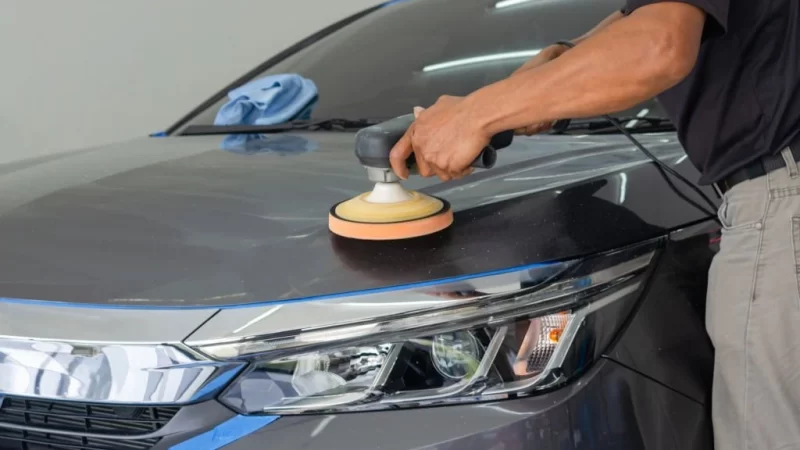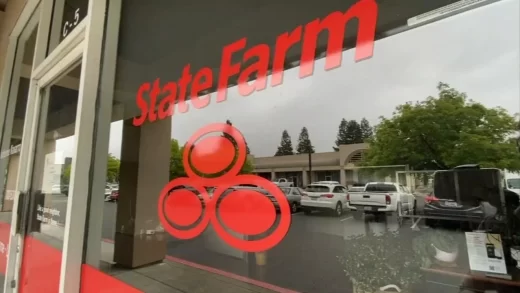What Does Full Coverage Car Insurance Cover? Complete Guide

What Does Full Coverage Car Insurance Cover? Full coverage car insurance offers comprehensive protection for your vehicle.
This type of insurance combines multiple coverage options to provide a wide range of benefits.
It typically includes liability coverage for bodily injury and property damage caused to others, collision coverage for damage to your own vehicle in accidents, and comprehensive coverage for non-collision incidents such as theft, vandalism, and natural disasters.
Full coverage car insurance may also include coverage for uninsured/underinsured motorists, medical payments, rental reimbursement, and additional options like towing and labor coverage.
Understanding what full coverage car insurance covers is essential for ensuring adequate protection and peace of mind on the road.
Liability Coverage
Liability coverage is a fundamental component of full coverage car insurance.
It provides financial protection in case you cause harm or damage to others while operating your vehicle.
Liability coverage typically consists of two main categories: bodily injury liability and property damage liability.
A. Bodily Injury Liability
- Bodily injury liability coverage pays for medical expenses, lost wages, and legal fees if you injure someone in an accident.
- It helps cover the injured party’s hospital bills, rehabilitation costs, and any potential lawsuits resulting from the accident.
- The coverage amount is typically split into limits per person and per accident, such as $50,000 per person and $100,000 per accident.
B. Property Damage Liability
- Property damage liability coverage reimburses the cost of repairing or replacing someone else’s property that you damage in an accident.
- This includes damage to vehicles, buildings, fences, or any other property that may be involved in the accident.
- Similar to bodily injury liability, property damage liability coverage also has specific limits, such as $50,000 per accident.
Having liability coverage is not only essential for meeting legal requirements in most states but also protects you from potentially significant financial burdens in case of an accident.
It safeguards your assets and helps ensure that any damages or injuries you cause to others are appropriately covered.
Recommended: How Long Do You Have To Report A Car Accident To Your Insurance Company?
Collision Coverage
Collision coverage is an integral part of full coverage car insurance. It provides coverage for damages to your own vehicle in the event of a collision, regardless of who is at fault.
This coverage is specifically designed to help repair or replace your car if it is damaged in an accident with another vehicle or object.
A. Coverage For Damage To Your Vehicle
- Collision coverage pays for the repair costs or the actual cash value (ACV) of your vehicle if it is damaged in a collision.
- It covers damages resulting from accidents with other vehicles, such as rear-end collisions, side-impact accidents, or hitting an object on the road.
- If the cost of repairs exceeds the ACV of your vehicle, collision coverage will generally reimburse you for the ACV.
B. Deductible And Coverage Limits
- Collision coverage typically has a deductible, which is the amount you are responsible for paying out of pocket before the insurance coverage kicks in.
- The deductible amount is chosen by you when setting up the policy, and it affects the premium cost.
- Collision coverage also has limits that specify the maximum amount the insurance company will pay for damages.
C. Considerations
- Collision coverage is usually optional but may be required if you have a car loan or lease.
- The cost of collision coverage depends on factors such as the value of your vehicle, your deductible amount, and your driving history.
- It is important to carefully consider the value of your vehicle and the potential cost of repairs versus the premium cost of collision coverage.
Having collision coverage provides financial protection in situations where your vehicle is damaged in a collision.
It helps cover the expenses associated with repairing or replacing your vehicle, allowing you to get back on the road quickly and minimizing the impact on your finances.
Uninsured/Underinsured Motorist Coverage
Uninsured/underinsured motorist (UM/UIM) coverage is an essential component of full coverage car insurance.
It offers protection in situations where you are involved in an accident with a driver who either has no insurance or lacks sufficient insurance to cover the damages.
This coverage ensures that you are not left financially responsible for injuries or damages caused by an uninsured or underinsured driver.
1. Coverage For Accidents Involving Uninsured OR Underinsured Drivers
- Uninsured motorist coverage (UM) applies when you are involved in an accident with a driver who doesn’t have any auto insurance.
- Underinsured motorist coverage (UIM) comes into play when the at-fault driver’s insurance coverage is insufficient to cover the full extent of your injuries or damages.
- UM/UIM coverage helps pay for medical expenses, lost wages, and other damages resulting from the accident.
2. Hit-And-Run Incidents
- UM/UIM coverage may also include protection for hit-and-run accidents where the responsible party flees the scene.
- This coverage can help compensate for damages and injuries even if the other driver cannot be identified or located.
4. Policy Limits And Deductibles
- UM/UIM coverage has limits, similar to liability coverage, which specify the maximum amount the insurance company will pay for each accident.
- It may also have a deductible, which is the amount you must pay out of pocket before the coverage applies.
4. State Requirements And Availability
- Some states mandate UM/UIM coverage, while others make it optional.
- The availability and specific requirements for this coverage vary depending on your location.
Having UM/UIM coverage provides valuable protection in situations where you are involved in an accident with an uninsured or underinsured driver.
It helps ensure that you receive compensation for your injuries and damages, even if the other party does not have sufficient insurance coverage.
UM/UIM coverage can provide peace of mind and prevent significant financial burdens in unfortunate circumstances.
Medical Payments Coverage
Medical payments coverage, also known as MedPay, is a component of full coverage car insurance that provides coverage for medical expenses resulting from an accident, regardless of who is at fault.
This coverage helps pay for necessary medical treatments and services for you and your passengers.
A. Coverage For Medical Expenses
- Medical payments coverage typically covers reasonable and necessary medical expenses, including hospital bills, doctor’s visits, surgery, X-rays, and ambulance fees.
- It may also cover other medical services like chiropractic treatments, dental care, and prosthetic devices.
B. No-Fault Coverage
- Medical payments coverage is considered “no-fault” coverage, meaning it applies regardless of who caused the accident.
- It can be used to cover your medical expenses, regardless of whether you have health insurance or not.
C. Policy Limits And Coordination With Other Coverages
- Medical payments coverage has limits that specify the maximum amount the insurance company will pay per person or per accident.
- In some cases, it can be coordinated with other health insurance coverage, where it acts as a supplemental payment source for expenses not covered by health insurance.
D. Availability And State Requirements
- Medical payments coverage availability and requirements vary by state.
- Some states require or offer it as part of the standard auto insurance policy, while others make it optional.
Medical payments coverage can provide valuable financial assistance by helping to cover medical expenses resulting from an accident.
It offers peace of mind knowing that you and your passengers have additional protection for medical treatments and services, regardless of fault.
Recommended: How Long Do I Have To Report An Accident To Progressive Insurance?
Personal Injury Protection (PIP)
Personal Injury Protection (PIP) is a type of coverage commonly included in full coverage car insurance.
PIP provides broader protection than traditional medical payments coverage by covering not only medical expenses but also other related costs resulting from injuries sustained in a car accident.
A. Coverage For Medical Expenses And Beyond
- PIP coverage typically includes coverage for medical expenses, similar to medical payments coverage.
- It can cover costs such as hospital bills, doctor’s visits, surgery, rehabilitation, and medication.
B. Additional Benefits
- PIP may also provide coverage for other expenses related to the accident, such as lost wages, childcare expenses, and funeral costs.
- It can cover essential services that you may require as a result of your injuries, such as household help or transportation.
C. No-Fault Coverage
- PIP is considered “no-fault” coverage, meaning it pays out regardless of who is at fault in the accident.
- This coverage applies to you and your passengers, regardless of whether you have health insurance.
D. Policy Limits And Coordination With Other Coverages
- PIP coverage has specific limits that determine the maximum amount the insurance company will pay for each category of expenses.
- It can also be coordinated with other health insurance policies to supplement coverage for expenses not covered by health insurance.
E. State Requirements And Availability
- PIP requirements and availability vary by state.
- Some states have mandatory PIP coverage, while others make it optional or do not offer it at all.
Personal Injury Protection (PIP) provides more extensive coverage compared to traditional medical payments coverage.
It not only covers medical expenses but also offers additional benefits to help with various costs associated with injuries from a car accident.
Understanding the terms, limits, and availability of PIP coverage in your state can help you make informed decisions and ensure you have the necessary protection for yourself and your passengers.
Additional Coverage Options
In addition to the core coverages discussed earlier, full coverage car insurance often offers various additional coverage options that can be added to your policy for enhanced protection.
These optional coverages can provide extra benefits and address specific needs or concerns you may have.
1. Towing And Labor Coverage
- Towing and labor coverage reimburses you for the costs associated with towing your vehicle to a repair shop and any necessary labor charges.
- It can be beneficial if your vehicle breaks down or is involved in an accident and requires immediate assistance.
2. Gap Insurance
- Gap insurance covers the “gap” between what you owe on your car loan or lease and the actual cash value (ACV) of your vehicle.
- In the event of a total loss or theft, gap insurance can help pay off the remaining balance on your loan or lease, preventing you from being financially responsible for the difference.
3. Custom Parts And Equipment Coverage
- Custom parts and equipment coverage provides protection for aftermarket additions or modifications made to your vehicle.
- It covers the cost of repairing or replacing these custom parts or equipment if they are damaged or stolen.
4. Roadside Assistance Coverage
- Roadside assistance coverage provides services such as emergency roadside towing, battery jump-starts, tire changes, fuel delivery, and lockout assistance.
- It can be useful in situations where your vehicle experiences a breakdown or you encounter other issues while on the road.
It’s important to note that the availability and specifics of these additional coverage options can vary among insurance providers.
When considering these options, carefully review the terms, limits, and any associated costs to determine if they align with your needs and budget.
By adding these additional coverage options to your full coverage car insurance policy, you can customize your insurance coverage to suit your specific requirements and gain extra peace of mind knowing you have protection in various situations.
Exclusions And Limitations
While full coverage car insurance provides extensive protection, it’s important to understand that there are exclusions and limitations within the policy.
These exclusions specify situations or circumstances where the insurance coverage may not apply, and limitations set boundaries on the extent of coverage.
A. Policy-Specific Exclusions
- Each insurance policy may have specific exclusions outlined in the policy document.
- Common exclusions may include intentional acts, racing, using the vehicle for commercial purposes, driving under the influence, and other illegal activities.
- It’s crucial to review your policy to understand the specific exclusions that apply.
B. Policy Limits And Deductibles
- Full coverage car insurance policies typically have limits on the maximum amount the insurance company will pay for various coverages.
- The sum that must be paid out of pocket prior to the insurance coverage taking effect is known as the deductible.
- It’s important to be aware of these limits and deductibles to understand your financial responsibility in the event of a claim.
C. Understanding Terms And Conditions
- Insurance policies have terms and conditions that outline the rights and responsibilities of the insured and the insurer.
- It’s essential to carefully read and understand the terms and conditions to ensure compliance and proper utilization of the coverage.
Understanding the exclusions, limitations, and terms of your full coverage car insurance policy is crucial to avoid misunderstandings and ensure you have realistic expectations about the coverage provided.
Familiarize yourself with the policy document and consult with your insurance provider or agent if you have any questions or need clarification on any aspect of the policy.
Conclusion
Full coverage car insurance offers comprehensive protection by combining liability, collision, comprehensive, and additional coverage options.
It provides coverage for bodily injury, property damage, damage to your vehicle, non-collision incidents, uninsured/underinsured motorists, medical payments, and more.
Understanding the coverage options within a full coverage car insurance policy is essential for making informed decisions, maximizing protection, and ensuring peace of mind on the road. You can visit Globlar.com for news and more updates
Review your policy carefully to grasp the extent of coverage, exclusions, limitations, and terms to ensure you have the appropriate level of protection for your needs.














